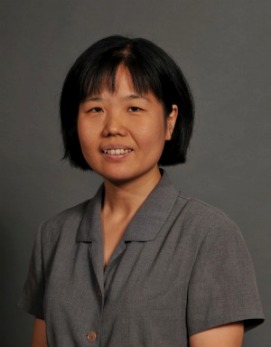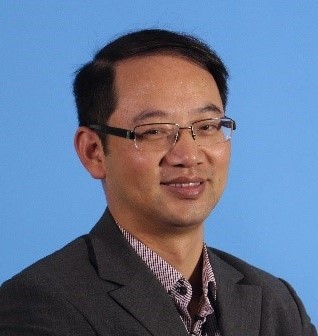ChinaCALL Conferences
- GLoCALL 2023 & 2023 (19th) ChinaCALL Conference
- 2022 International Conference on CALL
- 2021 International Conference on CALL
- 2020 International Conference on CALL
- The 2nd Conference on English Language Education in the Chinese Context
- GLoCALL 2018 Conference & 15th ChinaCALL Conference 2018
- 2016 International Symposium on CALL
- 2014 International Symposium on CALL
- 2012 GLoCALL Conference & 2012 International Symposium on CALL more
2024 (20th) ChinaCALL Conference (ChinaCALL 2024) & International Congress on English Language Education and Applied Linguistics (ICELEAL 2024)
2nd Call for Papers
August 23-25, 2024 Beijing, China
Hosted by Computer-Assisted Language Learning Association, China Association for Comparative Studies of English and Chinese (ChinaCALL), organized by Institute of Online Education, Artificial Intelligence and Human Languages Lab, and Project of Discipline Innovation and Advancement (PODIA)-Foreign Language Education Studies at Beijing Foreign Studies University (BFSU), Journal of China Computer-Assisted Language Learning (JCCALL), and Beijing Waiyan Online Digital Technology Co., Ltd., and cohosted by The Education University of Hong Kong, Guangdong University of Foreign Studies, South China Normal University and City University of Macau, the 2024 (20th) ChinaCALL Conference (ChinaCALL 2024) & International Congress on English Language Education and Applied Linguistics (ICELEAL 2024) will be held in Beijing, China, from August 23rd to 25th, 2024. The conference aims to share knowledge, skills, and ideas on the integration of technologies and language learning in the forms of pre-conference workshops, keynote speeches, symposia, individual presentations and colloquium.
We welcome experts, teachers, and practitioners in CALL to join us!
Invited speakers
1.Keynote speeches
-

Prof. GU Yueguo (Beijing Foreign Studies University)
【Speech Title】
Initiatives Towards GeronticCALL in China
【Abstract】
According to the 7th national census in 2021, there are over 260 million people aging 60 or beyond. This paper discusses initiatives ChinaCALL takes in assisting this population to participate in active aging programmes. It reports three AI-assisted GeronticCALL initiatives undertaken in the last three years: (1) Multimodal Corpus of Gerontic Discourse (MCGD) with natural language processing as its intrinsic component; (2) Smartphone-based oral-visual journals of daily activities as memory-enhancing and self-energizing strategies; (3) life-course narrative corpus and metaverse-based life-course reconstruction. The trial versions of the three initiatives have been put to test, and research papers have been published.
【Biodata】
Prof. GU Yueguo is the Chief Scientist of Artificial Intelligence and Human Languages Lab, Beijing Foreign Studies University (BFSU). Prof. GU is also the President of China Computer-Assisted Language Learning Association (ChinaCALL), the editor-in-chief of Journal of China Computer-Assisted Language Learning, and the founding Dean of the Institute of Online Education of BFSU. He served as Research Professor of Linguistics in the Chinese Academy of Social Sciences, the editor-in-chief of Contemporary Linguistics, and the editorial board member of Journal of Pragmatics, Text and Talk, Pragmatics, Journal of Intercultural Communication. His research areas include gerontolinguistics, corpus linguistics, pragmatics, discourse analysis, the philosophy of language, and online education.
-

Prof. Andy KIRKPATRICK (Griffith University, Australia)
【Speech Title】
English in Asia’s Expanding Circle Countries. Is It ELF, EFL or What?
【Abstract】
The distinction Kachru made between regions of the Outer and Expanding Circles was that in Outer Circle regions English played institutional roles and local varieties of English had developed. In Expanding Circle regions, in contrast, English played no societal role and was restricted to being a school subject. In the ensuing years, however, English has begun to play an increasing number of roles both within Expanding Circle regions themselves and as a lingua franca between people from Expanding Circle regions and elsewhere. In this talk, the increasing roles of English within selected Expanding Circle regions of Asia and between these and Outer and Inner Circle regions will be described and illustrated. The contemporary relevance of the Kachru’s ‘circles’ classification will be discussed and the possibility of developing a model to account for the development of English in Expanding Circle regions questioned.
【Biodata】
Andy Kirkpatrick is Professor Emeritus at Griffith University, Australia, a Fellow of the Australian Academy of the Humanities and Honorary Professor at The Education University of Hong Kong. His books include ‘Is English an Asian Language?’ (with Wang Lixun) (Cambridge University Press, 2021), ‘World Englishes: Research and Practice’ Shanghai Foreign Language Education Press (2019) and ‘Chinese Rhetoric and Writing’ (with Xu Zhichang) (Parlor Press). His most recent book is ‘The Friendship Store’ an account of his time as a postgraduate student in China in the 1970s (Graham Earnshaw 2024).
-

Prof. Randi REPPEN (Northern Arizona University, USA)
【Speech Title】
Patterns of Vocabulary and Grammar: The Context Matters
【Abstract】
As teachers we know our students need to control both vocabulary and grammar to be successful in academic contexts. In this presentation I will use corpus linguistic research to explore patterns of vocabulary and grammar that go together. I will then examine how these patterns vary across different contexts of use (speaking and writing). This will highlight the importance of register (e.g., context of use and communicative goal), and the importance of the choice of corpora used in research. I will then present example activities and resources that can be used to help teachers be more effective, and that can help our students have more strategies for tackling the important task of learning and controlling vocabulary and grammar with a focus on academic writing and conversation.
【Biodata】
Dr. Randi Reppen is Professor Emerita of Applied Linguistics and TESL at Northern Arizona University (NAU). She has a keen interest in using corpus research to inform language teaching and to develop better language teaching materials. Randi has given presentations in over 25 countries. She is the lead author of the multi-level ELT textbook series Grammar and Beyond with Academic Writing (2020) and her recent publications have appeared in the Journal of English for Academic Purposes, English Language and Linguistics, and the International Journal of Learner Corpus Linguistics.
-

Prof. Colin HARRISON (University of Nottingham, UK)
【Speech Title】
(Re-)Defining Critical Digital Literacy: What Is It, and How Should We Teach It?
【Abstract】
Critical Digital Literacy (CDL) is deictic: it needs to be continually redefined within rapidly evolving technological and cultural contexts. CDL requires an ability to critically assess and evaluate information in an online world that includes not only massive amounts of information, but also misinformation, disinformation, competing ideologies, disguised advertising, predatory journals, ‘echo chambers’, and ‘filter bubbles’. As Coiro (2023) has pointed out, over the past twenty years the Internet has rewritten epistemology: we have moved from ‘Probably true’ to ‘Whose truth?’ to ‘What is truth?’. Not only is information being Balkanised, Internet algorithms are deciding for us which Balkanised country we are to inhabit. In this chaotic information universe, what CDL tools do our students need to acquire, and what role should their teachers play? In this talk I shall highlight key research findings from Europe, the USA, Australia and China into CDL, and share five key pedagogical approaches that have been shown to increase Critical Digital Literacy.
【Biodata】
Colin Harrison is Emeritus Professor of Literacy Studies in Education at the University of Nottingham. He has over 140 publications, including fourteen books and 72 publications linking literacy and technology. Between 1989 and 2022 he was Principal Investigator on 25 funded projects on technology and learning, focusing particularly on students’ use of the Internet, and was consultant to the OECD in Paris on technology and learning (2002-4). From 2003-6 he chaired the International Reading Association’s Literacy and Technology Committee. He was a founding editor of the Journal of Research in Reading, and is a Past President of the UK Reading Association. He was elected to the Reading Hall of Fame in 2003, and was awarded the International Citation of Merit from the International Reading Association in 2010.
-

Dr. Prithvi N. SHRESTHA (The Open University, UK)
【Speech Title】
CALL, Social Justice and a Capability Approach: Potentials and Implications for Research and Praxis
【Abstract】
CALL has become an established field of study within applied linguistics since it emerged over fifty years ago. As a field it has undergone different historical phases as identified by various CALL scholars (e.g., Structural, Communicative and Integrative; Restricted, Open and Integrative). In this historical development process, CALL has been theorised by drawing on multiple disciplines and theories. At the turn of the 21st century, it was theorised by using Vygotsky’s sociocultural theory as it influenced language education then. In 2003, my former late colleague Stephen Bax aptly called the current phase of CALL normalisation or Integrative CALL. This means CALL has become a part of our normal everyday (language learning) life. However, the CALL scholarship appears to have focused on its affordances and efficacies until Covid-19 paralysed the world in 2020 when attention was suddenly turned to access and equity issues in CALL. As a result, CALL scholarship has just taken a critical turn which examines power, privilege, equity, coloniality and social justice in CALL through different Critical Theories. In this talk, having briefly historicised CALL, I will propose and discuss how a capability theory developed by economist Amartya Sen provides us with tools to evaluate CALL regarding social justice from a novel angle. Specifically, I will discuss expansion of capabilities through CALL for social justice and conclude with some implications for research and praxis.
【Biodata】
Dr Prithvi N. Shrestha, an award-winning author (British Council ELTons finalist 2019), is a Senior Lecturer in English Language at The Open University, UK. He has led or co-led many funded international research projects. He has published over 65 research outputs, including one research monograph (Dynamic Assessment of Students’ Academic Writing (Springer, 2020)) and an edited volume, covering CALL, academic literacy and disciplinary writing, academic writing assessment in distance education, language assessment, English language education in developing countries, English medium instruction. His research interests include application of social justice, critical theories, systemic functional linguistics and sociocultural theory in the above areas.
-

Prof. LIU Shijuan (Indiana University of Pennsylvania, USA)
【Speech Title】
Teaching and Learning Languages Online After the Pandemic with Generative AI Technologies
【Abstract】
Teaching and learning languages online have become more widely accepted after the pandemic. This session discusses some trends in the practice and study of online language teaching and learning. In addition, represented by OpenAI's ChatGPT, generative AI technologies have received unprecedented global attention since November 2022 and remain a heated topic across professions including education. This session will examine opportunities and challenges brought by these disruptive technologies to language teaching and learning with examples in different languages. Suggestions for when and how to use these technologies appropriately and effectively in language teaching and learning, particularly in online environments, will also be provided, drawing upon relevant research and practice.
【Biodata】
Dr. Shijuan Liu has been working in the field of language teaching and learning for over 20 years. Currently, she is Professor of Chinese in the Department of Foreign Languages, Indiana University of Pennsylvania. She holds a doctorate in Instructional Systems Technology and has published widely on technology integration and language education. She has been an editor for the Journal of Technology and Chinese Language Teaching since its 2010 inaugural issue, and recently edited two books on the teaching and learning of the Chinese language online across the globe. Dr. Liu has been invited to give talks and workshops at international conferences and in prestigious institutions worldwide.
-

Dr. WANG Lixun (The Education University of Hong Kong)
【Speech Title】
Three Languages, One Framework: Understanding Hong Kong's Trilingual Education for Global Insights
【Abstract】
In the multilingual landscape of Hong Kong, linguistic diversity flourishes with three principal languages: Cantonese, the vernacular of the majority; English, the language of international prestige; and Putonghua, the national tongue of China. Cantonese was traditionally the language of instruction in primary schools, with secondary schools split between English and Cantonese instruction. Post-1997, the "biliterate and trilingual" policy aimed to balance these languages, aiming for proficiency in written English and Chinese, as well as spoken English, Cantonese, and Putonghua. However, schools lack clear guidance on implementing this policy. Our research, using surveys, interviews, classroom observations, and teacher feedback, seeks to clarify how trilingual education is being applied. We will share key insights, particularly regarding the choice of Medium of Instruction (MoI) and the use of code-mixing and code-switching in education. Our findings aim to direct Hong Kong schools to better trilingual education methods and to contribute to the global understanding of multilingual education.
【Biodata】
Dr. WANG Lixun is Associate Dean of the Faculty of Humanities and Associate Professor in the Department of Linguistics and Modern Language Studies at the Education University of Hong Kong. His research interests include corpus linguistics, computer-assisted language learning, multilingual education, and corpus-based translation studies. His books include ‘Introduction to Language Studies’ (Pearson 2011), ‘Trilingual Education in Hong Kong Primary Schools’ (with Andy Kirkpatrick) (Springer 2019), ‘Identity, Motivation, and Multilingual Education in Asian Contexts’ (with Mark Feng TENG) (Bloomsbury 2020), and ‘Is English an Asian Language?’ (with Andy Kirkpatrick) (Cambridge University Press 2021). He is editor-in-chief of Springer book series ‘Multilingual Education’.
-

Dr Sylvia Karastathi(LanguageCert Assessment)
【Speech Title】
Designing Multimodal Tasks for Language Learners: Enabling Frameworks and Key Competencies for the Digital Era
【Abstract】
Digital technologies have afforded new opportunities for multimodal tasks and assessments in language classrooms; from video creation and infographics to slide presentations and interactive posters. These activities develop skills beyond linguistic competence; they promote multimodal communicative competence. This talk will draw on insights and experiences from a research project conducted in a higher education context working with oral video-presentations. This talk will first pose the question: how are we facilitating the development of students’ visual literacy skills? And subsequently it will draw on two enabling recent frameworks (The Common European Framework of Reference for Visual Competency and The Framework for Visual Literacy in Higher Education) that can help educators articulate key competencies. Working with enabling frameworks nuances educators’ understanding of ‘visually representing’ as a skill and supports the development of multimodal assessment tasks in the language classroom. With these tools educators are better equipped to create a learning environment that supports producing and critiquing multimodal texts, and resists passive consumption of visual images.
【Biodata】
Dr Sylvia Karastathi is a teacher educator and lecturer with over 10 years of experience in higher education. She is the Head of Teacher Support at LanguageCert, leading on resources and events to support the teaching communities around LanguageCert certifications. She is also an adjunct lecturer at the Ionian University, Greece, Department of Foreign Languages, Translation and Interpreting, where she co-ordinates the department's graduate teacher development program. In previous roles she has served in pre-service teacher education as the BA and MA TESOL Program Director. Her research interests and publications are in the areas of language education and visual literacy, multimodality and visual culture. She holds a PhD in English from the University of Cambridge, and a Diploma in Teaching English to Speakers of Other Languages (DELTA).
Conference theme:
We invite participants to present their current or recent research and to focus hereby on one or more of the following 10 topics.
2. Emerging technologies & language education
3. Web-based language teaching, learning & assessment
4. CALL materials & CALL environment
5. CALL & teacher education
6. CALL in vocational education
7. English Language Education
8. Applied Linguistics
9. Bilingual Education and Bilingualism
10. Translation Studies
Best Presentation Award will be awarded to up to two participants. High quality research papers in English will be recommended to be published on Journal of China Computer-Assisted Language Learning (JCCALL), an international refereed publication, which is the official journal of ChinaCALL, an affiliate of China Association for Comparative Studies of English and Chinese. The journal is founded by Beijing Foreign Studies University (BFSU) in April 2021, and it is peer-reviewed, published in English, open-access and issued twice a year by De Gruyter and Foreign Language Teaching and Research Press. (JCCALL website: https://www.degruyter.com/journal/key/jccall/html。)
Selected research papers in English will also be suggested to other journals, including International Journal of Computer-Assisted Language Learning and Teaching (IJCALLT) and Chinese Journal of Applied Linguistics. Besides, we also plan to publish online a conference proceeding of accepted papers.
Important Dates:
| From December 1, 2023 | Opening of regular registration & proposal submission |
| May 31, 2024 | Deadline for proposal submission & early bird payment |
| From June 1, 2024 | Notices of acceptance sent out |
| June 30, 2024 | Deadline for regular registration & payment |
| July 31, 2024 | Release of conference program & Deadline for short papers submission |
| August 23, 2024 | Reception & pre-conference workshops |
| August 23-25, 2024 | Plenary & concurrent sessions |
Conference information:
1. Please click “Registration” on the conference website to register and submit abstracts ONLINE.
2. Working languages: English
3. Conference sessions: The conference will be composed of pre-conference workshops (60min per session), keynote speeches (60min per session), symposia (90min for 3-4 speakers per session), individual presentations (25min per session).
4. Registration Fee & payment: The registration fee is RMB¥1200 or USD$177 each for the regular participant, and RMB¥800 or USD$118 each for early bird registration & full-time postgraduate student. Please kindly note that student participants need to present their student IDs upon registration. The registration fee includes the cost of conference organization and the conference information package. Once paid, it will not be refunded. The registration fee has to be prepaid before June 30, 2024. Please kindly note that regular participants who fail to pay by due date will not be arranged to give presentations. On-site payment will only be available for listeners who decide to come on short notice.
For international participants, please pay the registration fee to:
Account Name (Beneficiary): Beijing Foreign Studies University (北京外国语大学)
Account No: 0200 0076 0902 6402 172
Bank Name: Industrial and Commercial Bank of China Beijing Municipal Branch (中国工商银行北京市分行)
Swift Code: ICBKCNBJBJM
*Please note: Full name + ChinaCALL + email address/phone number
5. Accommodation: The hotel information will be released on the conference website in due course. Please kindly note that the conference organizing committee is NOT responsible for hotel reservation, and the hotel expenses are NOT included in the registration fee.
6. Invoice: Please fill in the invoice details online upon registration.
Abstract submission guideline:
1. Please click “Registration” on the conference website to register and submit abstracts ONLINE. Abstracts submitted should present new and unpublished research.
2. Deadline of submission: Abstract must be submitted online before May 31, 2024. Each leading author (first author) can submit up to 2 abstracts.
3. The Body of Abstract: Maximum word count is 300. (Title, authors, affiliations and references are not included in word limit.) The abstract should be composed of research background, objectives, methods and outcomes. Please include the grant or other support information for your research, if appropriate.
4. After abstracts are accepted, please send short papers (about 3000 words) to conference@beiwaionline.com before July 31, 2024.
Contact us:
Website: www.chinacall.org.cn/conference2024
E-mail: conference@beiwaionline.com
Tel: (86) 010-88818307
Conference Organizing Committee
April 2024














